| Listing 1 - 10 of 66 | << page >> |
Sort by
|
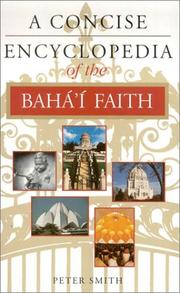
ISBN: 1851681841 Year: 2000 Publisher: Oxford Oneworld
Abstract | Keywords | Export | Availability | Bookmark
 Loading...
Loading...Choose an application
- Reference Manager
- EndNote
- RefWorks (Direct export to RefWorks)
Bahai Faith --- encyclopedia --- the Baha'i faith
Book
ISBN: 8431317663 Year: 2000 Publisher: Pamplona Eunsa
Abstract | Keywords | Export | Availability | Bookmark
 Loading...
Loading...Choose an application
- Reference Manager
- EndNote
- RefWorks (Direct export to RefWorks)
Book
ISBN: 1565181301 Year: 2000 Publisher: Washington (D.C.): Council for research in values and philosophy
Abstract | Keywords | Export | Availability | Bookmark
 Loading...
Loading...Choose an application
- Reference Manager
- EndNote
- RefWorks (Direct export to RefWorks)
Faith and reason --- Christianity --- Islam
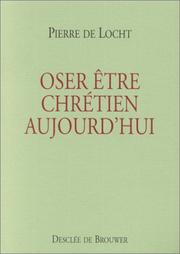
ISBN: 222004792X 9782220047928 Year: 2000 Publisher: Paris: Desclée De Brouwer,
Abstract | Keywords | Export | Availability | Bookmark
 Loading...
Loading...Choose an application
- Reference Manager
- EndNote
- RefWorks (Direct export to RefWorks)
Nous sommes bien loin, désormais, du temps où la foi était reçue comme une évidence ou imposée comme un argument d'autorité. Il faut du coup une certaine force d'audace pour oser être chrétien aujourd'hui, risquer une parole de croyant. Mais comment vivre cette audace aussi bien à l'intérieur de l'Église qu'au-dehors, dans la tolérance et le respect des autres ? Peut-on professer, même au coeur des institutions, une expression de foi libre, au-delà des chemins balisés ? Prolongeant la réflexion ouverte dans La foi décantée, Pierre de Locht s'interroge sur le contenu de la croyance chrétienne et son dynamisme interne. Car il n'est pas anodin de se référer à Jésus et à sa Bonne Nouvelle. Il ne va plus de soi non plus d'utiliser les mots du dogme, les termes du Credo en rejoignant les mentalités actuelles et la conscience moderne. D'où l'urgence de retrouver l'intuition spirituelle forte du christianisme qui invite chaque conscience à la liberté et au choix de la vie.
Christian Religion --- Christianity --- Faith --- Christianity - 20th century
Book
ISBN: 9023904753 Year: 2000 Publisher: Zoetermeer Boekencentrum
Abstract | Keywords | Export | Availability | Bookmark
 Loading...
Loading...Choose an application
- Reference Manager
- EndNote
- RefWorks (Direct export to RefWorks)
Faith and reason --- Faith and logic --- Logic and faith --- Reason --- Reason and faith --- Reason and religion --- Religion and reason --- Christianity --- Religious aspects --- Christian fundamental theology
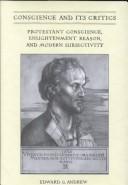
ISBN: 1442614870 1282033875 9786612033872 1442673249 9781442673243 9781282033870 0802048595 9780802048592 9781442614871 6612033878 1442654309 Year: 2000 Publisher: Toronto
Abstract | Keywords | Export | Availability | Bookmark
 Loading...
Loading...Choose an application
- Reference Manager
- EndNote
- RefWorks (Direct export to RefWorks)
Conscience and Its Critics is an eloquent and passionate examination of the opposition between Protestant conscience and Enlightenment reason in the seventeenth and eighteenth centuries. Seeking to illuminate what the United Nations Declaration of Rights means in its assertion that reason and conscience are the definitive qualities of human beings, Edward Andrew attempts to give determinate shape to the protean notion of conscience through historical analysis. The argument turns on the liberal Enlightenment's attempt to deconstruct conscience as an innate practical principle. The ontological basis for individualism in the seventeenth century, conscience was replaced in the eighteenth century by public opinion and conformity to social expectations. Focusing on the English tradition of political thought and moral psychology and drawing on a wide range of writers, Andrew reveals a strongly conservative dimension to the Enlightenment in opposing the egalitarian and antinomian strain in Protestant conscience. He then traces the unresolved relationship between reason and conscience through to the modern conception of the liberty of conscience, and shows how conscience served to contest social inequality and the natural laws of capitalist accumulation.
Conscience --- Faith and reason --- Religious aspects --- Christianity.
Periodical
Year: 2000 Publisher: Kuala Lumpur : Jabatan Akidah dan Pemikiran Islam, Akademi Pengajian Islam, Universiti Malaya,
Abstract | Keywords | Export | Availability | Bookmark
 Loading...
Loading...Choose an application
- Reference Manager
- EndNote
- RefWorks (Direct export to RefWorks)
Faith (Islam) --- Islam --- Doctrines --- Malaysia. --- Malaysia
Book
ISBN: 382584935X Year: 2000 Publisher: Münster LIT
Abstract | Keywords | Export | Availability | Bookmark
 Loading...
Loading...Choose an application
- Reference Manager
- EndNote
- RefWorks (Direct export to RefWorks)
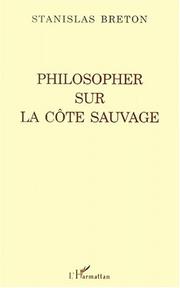
ISBN: 2738498663 9782738498663 Year: 2000 Publisher: Paris: L'Harmattan,
Abstract | Keywords | Export | Availability | Bookmark
 Loading...
Loading...Choose an application
- Reference Manager
- EndNote
- RefWorks (Direct export to RefWorks)
Philosophy and religion --- Faith and reason --- Christianity and philosophy --- Religion and philosophy --- Religion --- Faith and logic --- Logic and faith --- Reason --- Reason and faith --- Reason and religion --- Religion and reason --- Religious aspects
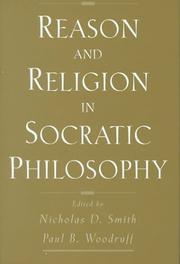
ISBN: 0195133226 9780195133226 Year: 2000 Publisher: Oxford: Oxford university press,
Abstract | Keywords | Export | Availability | Bookmark
 Loading...
Loading...Choose an application
- Reference Manager
- EndNote
- RefWorks (Direct export to RefWorks)
Faith and reason --- Socrates --- Religion --- Socrate --- Socrates Constantinopolitanus Scholasticus --- Religion. --- Philosophy. --- Philosophie --- Faith and logic --- Logic and faith --- Reason --- Reason and faith --- Reason and religion --- Religion and reason --- Religious aspects --- Socrates - Religion --- Sokrates
| Listing 1 - 10 of 66 | << page >> |
Sort by
|

 Search
Search Feedback
Feedback About UniCat
About UniCat  Help
Help News
News